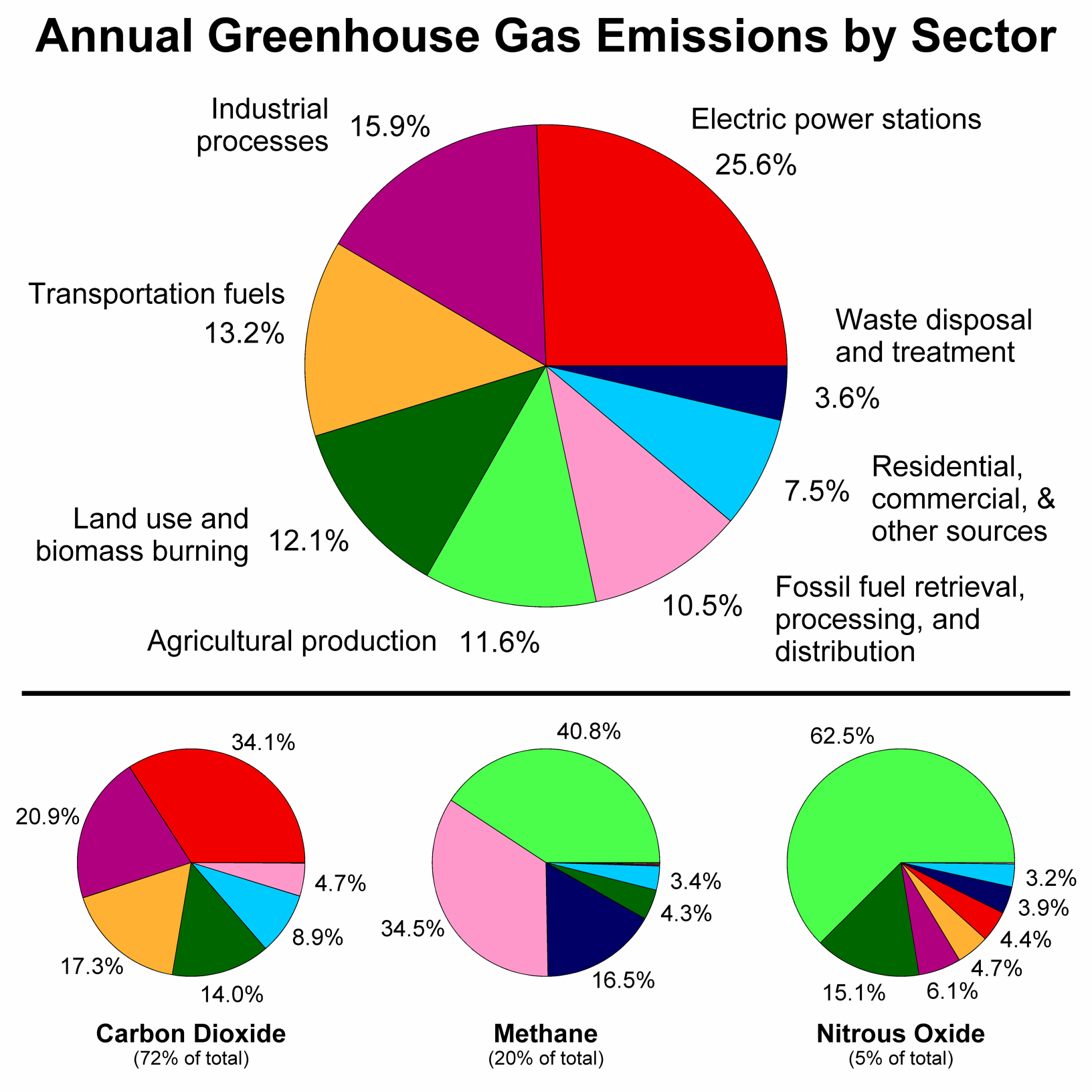A guy I knew as an undergrad told me he stopped eating meat after taking an agricultural food science course and learning all of the gross details of what goes into meat and how it is processed. He will still eat meat, but not in America. I know a couple vegetarians who are morally opposed to the treatment the animals receive, and vegans who are sickened by the thought of all of the artificial preservatives and hormones the animals are fed. Honestly sometimes it feels like I need a better reason than 'meat is tasty' to continue being a part of the whole mess.
I got a new perspective this past weekend, though. I've made a new friend who is vegetarian, and when I asked for her story she explained that animal farming was one of the major contributions to pollution and greenhouse gases. Her opinion was that not eating meat was a simple thing she could do to help the environment.
Now I remember a few years ago when everyone was joking about cow farts causing global warming, but I had largely dismissed it as media bias. Cow farts are funny and not our fault, so it's nice to be able to blame something like global warming on the poor flatulent cows. Now I wasn't so sure. I went and did a little research about the various factors contributing to the build-up of Greenhouse gases and found a compilation of greenhouse gas emissions for the year 2000, prepared by the Emissions Database for Global Atmospheric Research. It's a bit dated, but it's the cleanest-looking graph I found. The EPA has some more up-to-date information if you're interested.

It's a bit surprising to see it all laid out like that, isn't it? You get the impression from the media that the biggest problem is our loud, smelly cars and their exhaust but it's far more complex than that. Power, industry, agriculture...all of these things affect our daily lives in ways we probably haven't thought about.
Getting back to the point though, agriculture doesn't really seem that bad, does it? Certainly not as bad as transportation and power. The thing is though, even though carbon dioxide build-up is what everyone hears about as the cause of Global Warming and the Greenhouse Effect, methane traps heat in the atmosphere over twenty times more effectively, and Nitrous oxide is about 310 times more effective. Look where most of the methane and nitrous oxide are coming from.
It's not just the cow farts, though. Really. Both the direct and indirect effects of agriculture are pretty significant. Fertilizer overuse is the biggest contributor, but methane production by livestock is pretty up there and is compounded by clear-cutting forests, that would normally serve as carbon sinks, to create pastures and grow crops.
So is vegetarianism really helping the environment? Maybe a little. It's pretty undeniable that it's healthier for you, and the animals aren't treated well. In today's modern society we really don't need meat to provide our daily allotment of amino acids. Change is really hard, though...and that's what the bigger issue really is. So much of the way we live our lives is tied into these industries...we all want to think that we're making a difference by addressing one aspect of the problem, but too often we aren't seeing the big picture. To really fix the problem a lot has to change, and it may take decades or centuries for that to really take hold.
In the meantime, do what you can! It may sound trite, but change has to start somewhere. I've been trying to eat healthier anyway, I might as well cut a little more meat out of my diet. There's an awesome Farmer's Market near my house, I should go more often. Who knows, maybe it will make a difference. Baby steps, and all that.
I think this country has reached a critical mass as far as consumption. Almost everyone I know is now in the practice of 'random acts of temperance'. The companies are the main culprit; by overproducing they enable type of overconsumption to which people grow accustomed. The best mode of communication for these companies that overproduce is a the financial avenue. Unfortunately, they've already cultivated their 'stock' (if you will) and any attempts to boycott will result in sharper spikes in overconsumption from the stock (that won't boycott for such reasons as: "God given rights" and "being an Am'r'kin")
ReplyDeleteIn short, I think we're screwed either way. Our options seem to be do the right thing until our country collapses or do the wrong thing until out country collapses. There was no super hero to stop the world domination. The End.